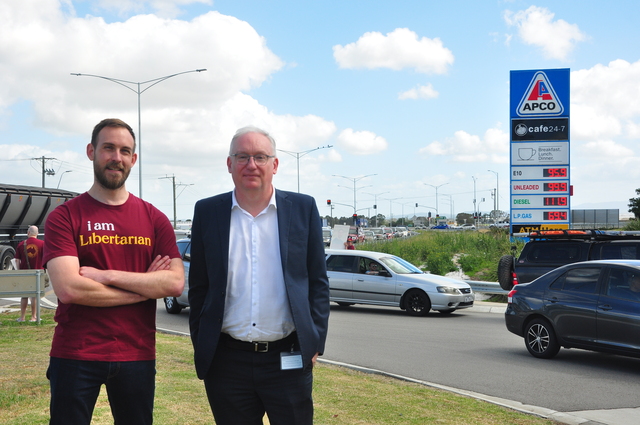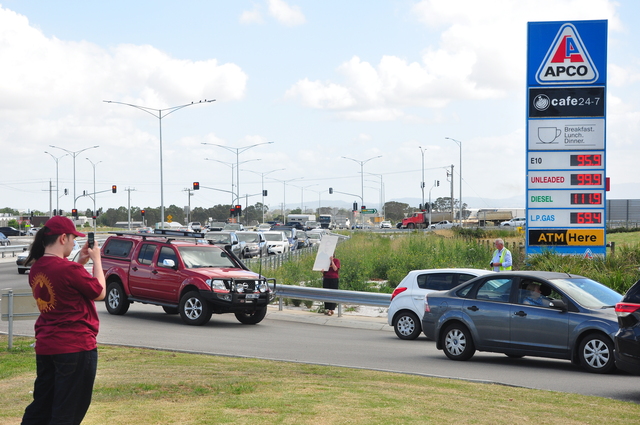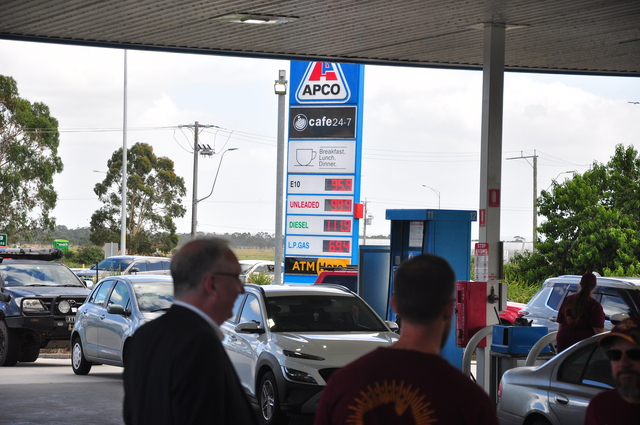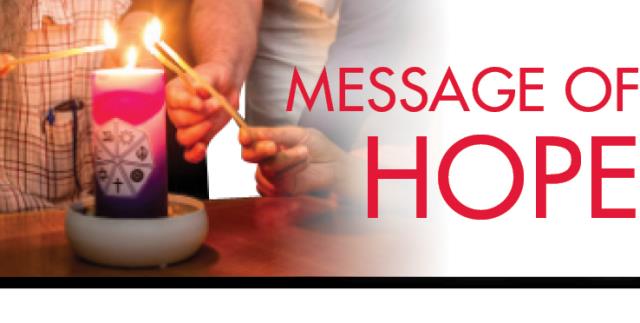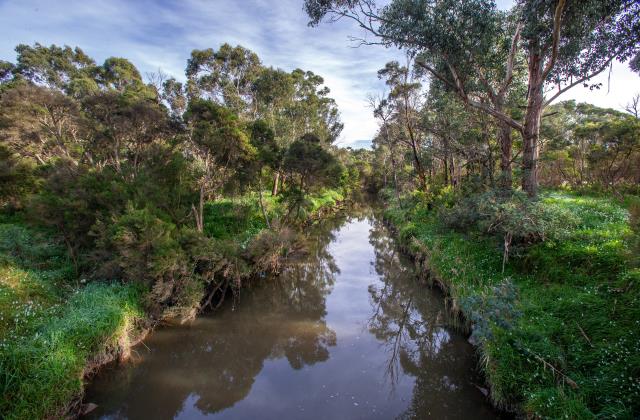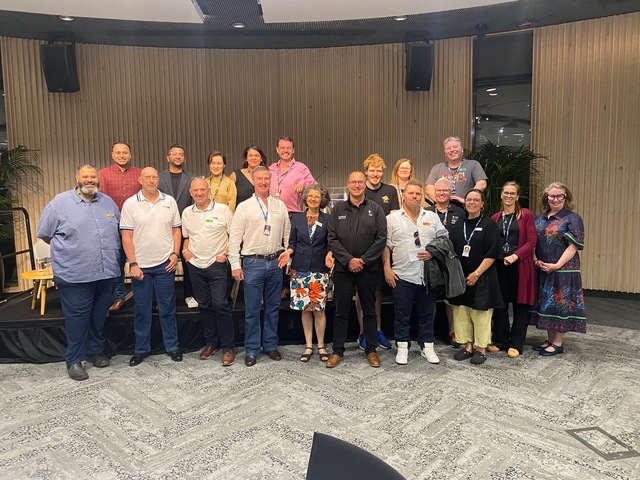Motorists were greeted with a pleasant morning surprise as petrol prices sunk down to barely a dollar in Cranbourne West, the lowest prices since 2016.
Led by the Southeastern Metropolitan MP David Limbrick and Jordan Dittloff, the lead senate candidate for the Libertarian Party, the APCO petrol station just off Hall Road’s corner with the Western Port Freeway had its prices slashed to just 99.9 cents on Wednesday 18 December.
While the promotion only lasted for an hour between 10am and 11am, people were quick to line up outside the premises, filling the turning lane from the intersection.
Limbrick that “today we’re going to have a lucky few motorists who are going to get this discount”.
“I’m just delighted that Jordan has chosen my area to show what’s happening with government price gouging of petrol,” he said.
Dittloff’s agendas span the entirety of Victoria, with the price slashing only but a small example of the impact it could have on everyday people’s lives.
“Fuel excise is about 30 per cent, and we are also paying GST on top of that, so we’re getting slugged with that double tax,” he said.
“Libertarians say that out of the $15 billion a year that gets taxed for fuel excise, only about $10 billion of that goes on roads, so you’re getting a lot of overflows and the government’s pocketing a lot of extra change.”
Prices were at 99.9 cents per litre for unleaded, 95.9 cents for e10, 111.9 for diesel and 69.4 for L.P. gas, and local motorists were ecstatic to be able to snag the limited price, with one telling Star News that “this is great”.
“Whatever it is that saves us money, it’s great and I do hope this happens in the long term, but for now it’s good,” they said.
Another driver said that it was “amazing, considering this is just around the corner from Christmas time”.
The fuel excise is a tax on fuel consumption and contributes to the Federal Government’s general revenue rather than being specifically allocated for road funding or other similar infrastructures.
According to the Australian Automobile Association, the current rate of the excise is at 50.6 cents for every litre, and over the decade to 2022-2023, only 57% of this excise was reinvested in land transport projects.
Specifically in 2023-2024, Australian motorists paid $15.71 billion in fuel excise, and are expected to pay $67.6 billion over the four years until 2026-2027, as cited from the 2023 October Federal budget.
To Dittloff and the Libertarians, they “have some good ideas on how to cut that $10 billion down so we can get rid of this excise and still get money to spend on roads”.
“For one we can defund the Australian Broadcasting Corporation (ABC), we’ve got great private organisations (news), we can get rid of the eSafety Commissioner, we can get rid of the Federal Department of Education and lots of other bureaucratic duplication and overlap.
“The government spend $10 billion without really breaking a stride, so we can absolutely find savings without making a difference to people’s lives,” he said.
Defunding these three parties would make a significant amount of budget savings, although it would simultaneously deal a significant blow to currently available public services.
Less money to the ABC, which received $1.137 billion in taxpayer funds in 2023-2024 would mean less nationwide coverage and media diversity, leading to plausible concentrations of media ownership; instead, their belief is the need for government-funded media to compete on fair grounds with private media, operating through their own advertising and subscriptions.
Foregoing the eSafety Commissioner would also mean their role of addressing online abuse, cyberbullying and other illegal online content could potentially leave younger Australians more vulnerable.
However, free speech has been a focal point, where the Institute of Public Affairs published earlier this year of the commissioners’ political bias.
A similar situation would happen with the Federal Department of Education, where the collapse of its role of overseeing national education policies, funding and programs could impact educational services nationwide.
Nevertheless, there is a strong belief from the Libertarians that education should be managed at a state level, with federal involvement creating unnecessary red tape and less focus on localised control.
“Going back 20 years now and basically what this shows is that people are really struggling, cost-of-living is something a lot of politicians like to say, but nobody’s actually putting the money where their mouth is and doing anything about it,” Dittloff said.
“If the government were serious about actually helping people out on the cost-of-living, they’d be doing things like what we’re doing today – and they did during Covid, for six months the excise was gone.”
“So it’s not about they can’t it’s that they haven’t, we don’t have a cost-of-living crisis, we’ve got a cost-of-government crisis.”

